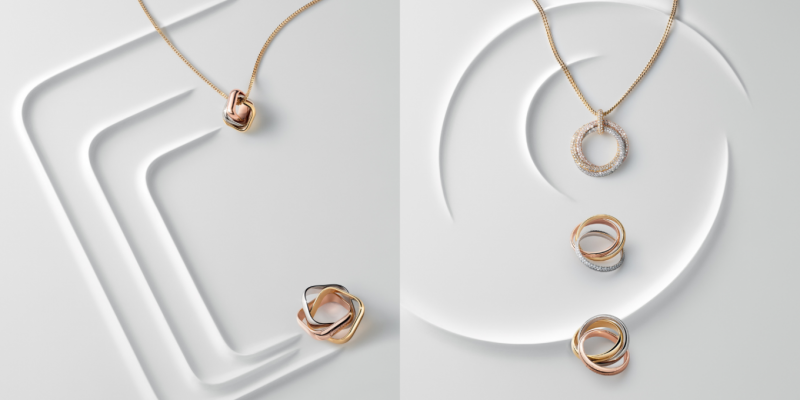Health & Fitness
Why is it so hard to figure out what we should eat?
Whether you're trying to lose weight or aspiring to idyllic wellness, Wing Sze Tang explores the hodgepodge buffet of bewildering "diet" options before us in 2018.
by : Wing Sze Tang- Jan 8th, 2018

“Eat food. Not too much. Mostly plants.” This is the pithy tl;dr of Michael Pollan’s seminal In Defense of Food. It doesn’t get any more crystal clear than that, but in the decade since his book hit shelves, the way we’re supposed to eat hasn’t gotten any simpler. Whether we’re trying to lose weight or aspiring to idyllic wellness, everyone’s standing in front of a hodgepodge buffet of bewildering options. What we think we know about food is ever shifting and endlessly debated. Just when we’re sure too much bacon and butter is a heart attack waiting to happen, keto fans promote eating mostly fat. Then when we’re convinced breakfast is a must, intermittent fasters say we should skip meals instead. And as we’re all chugging kale juice, here comes news that lectins, a protein in all veggies, incite “chemical warfare” in our body (the controversial premise of The Plant Paradox).
Being bombarded by contradictory opinions is giving us all “message fatigue,” says Daniel Sellen, a human nutritional ecologist and applied anthropologist at the University of Toronto. While clickbait-y advice may sell, “you won’t find many really responsible, well-trained nutritionists or physicians pushing particular diets with no commercial interests of their own,” he warns. Dr. Yoni Freedhoff, assistant professor of family medicine at the University of Ottawa and founder of the Bariatric Medical Institute, agrees that nutrition hype is more about marketing spin than major leaps in research. “That’s not to say there haven’t been changes to the science and what we understand about nutrition, but they’re not as dramatic as people believe them to be,” says Freedhoff, who is also the author of The Diet Fix: Why Diets Fail and How to Make Yours Work.
Freedhoff points to saturated fats as one example of science that has legitimately evolved. It seems they’re not the dietary enemy we once thought, and health-wise people who switched from saturated fats to ultra-processed carbohydrates were probably worse off. But the idea that saturated fats are suddenly great and we should pile on the cheese? That’s a sales pitch, not science.
One of the biggest factors shaping the way we eat now is fear, argues Freedhoff. “[People] want to have dietary demons and heroes that simplify everything to the point where there’s no effort required to be healthy; we just have to avoid this group of foods and have more of [another] group.” That’s why a splashy headline declaring carbs evil is so compelling, even if the truth is more nuanced. (Carbs are an important source of energy, but go for complex ones from nutrient-rich whole-plant foods, not sugar bombs.)
Even when the hype has a seed of truth, take it with a liberal grain of salt: “Most of the time, new diet trends have some origin in nutrition science, but they’re usually blown way out of proportion,” says Desiree Nielsen, a Vancouver-based registered dietitian and host of The Urban Vegetarian on Gusto TV. She points to diet fads based on studies with cell cultures or animals—we don’t actually know they’ll benefit us because they’ve never been tested on humans.
In Nielsen’s view, our collective nutrition know-how is more sophisticated now than it was five years ago— we’re more wary of hyper-processed fare and more mindful of how our food decisions affect the environment. But even so, “all too often, we still view food choices as binary: good/bad or right/wrong,” says Nielsen. “Wellness regimens and detoxes have replaced traditional weight-loss dieting, but we may still approach these seemingly evolved philosophies from a place of lack—[internalizing] the idea that if we aren’t eating clean or doing Paleo or going strictly vegan, we aren’t good enough.”
And while the intricacies of nutrition science can be dry and academic, social media can give diet trends a glossy, aspirational sheen. (See: the Insta-fame of the Whole30.) “Social-media gurus can impact our lives just as intensely as a fad-diet book, perhaps more,” says Nielsen. “I feel the typical Instagram wellness guru is selling an idealized life we compare our own to. Creating an ombré smoothie is insanely labour-intensive.”
But reality check? “True wellness is not an elite endeavour,” says Nielsen. “In fact, some of the most basic aspects of human self-care—drinking water, eating vegetables or legumes, going for a walk in nature—are dirt cheap, pretty unglamorous and totally transformative to your health.”
So the decade-old advice to eat food, not too much, mostly plants? Still solid, even if it’s not the freshest idea on the table.
WHOLE30
THE POINT This is an elimination diet, or what creator Melissa Hartwig, a certified sports nutritionist, calls a “30-day reset.” During that time, you swear off grains, legumes, dairy, sugar and booze, all of which she considers “commonly problematic” (i.e., blood-sugar disrupting, gut damaging and inflammatory). “There’s a lot of overlap with what we eliminate and what Paleo folks don’t eat,” says Hartwig. The difference is that Whole30 is a short-term experiment: When your month is up, you phase in the foods gradually, to pinpoint what’s causing your issues.
THE PRO OPINION On the plus side, the Whole30 isn’t weight focused (though Hartwig says completers lose, on average, six to 15 pounds) and it’s big on whole foods. “Forcing yourself out of a routine of hyper- processed food can be powerful, particularly if it motivates you to change long term,” agrees Nielsen. “Of course you are going to feel better when you are eating protein and vegetables all the time, particularly if you usually eat a pretty junky diet.” But, she says, it’s not necessary to nix everything on the Whole30’s no-go list to get healthy. If you aren’t well and you think an elimination diet could help, Nielsen advises trying one under the guidance of an allergy-savvy dietitian.
COUNTING CALORIES
THE POINT Proponents say that weight loss is a matter of math: Eat fewer calories than you burn. The idea isn’t new, but it has never really gone away. Google “CICO” (calories in, calories out) to find Redditors’ trading strategy.
THE PRO OPINION “At the end of the day, you need an energy surplus to gain weight and an energy deficit to lose, and that will always remain true,” says Freedhoff, who considers calories a useful metric for the weight conscious, especially if they can’t achieve their goal without keeping count. But calories aren’t the end-all: “Both the quality and the quantity of calories matter, period, full stop,” he says.
INTERMITTENT FASTING
THE POINT No one wants to be hangry 24-7, but would you skimp on calories, say, every other day if it gave you a longer, healthier life? That’s the premise of intermittent fasting (IF). One theory holds that IF stresses the body in a mild way, prompting it to strengthen its cellular defences. The how-to varies: On a 5:2 program, you eat only 500 calories two days a week; others will fast for 12 to 16 hours daily.
THE PRO OPINION “The body wasn’t designed for a constant stream of food; blood-sugar regulation and digestion function have a natural fed/unfed cycle,” says Nielsen. “There are actually some human clinical trials to support the use of IF in improving weight and disease outcomes. The challenge is making it a lifestyle.” How long can you go before you become miserable when you can’t eat and binge when you can? Freedhoff doesn’t find the science on IF scary or exciting. If it works for you and you love it, great, he says. “But in my experience, that’s a small proportion of people—anecdotally, young male bodybuilders seem to enjoy it most.”
KETO
THE POINT Used since the ’20s as a treatment for epileptic seizures, the ketogenic diet is ultra-high fat (approximately 65 to 75 percent), medium protein (approximately 15 to 25 percent) and low carb (approximately 5 to 10 percent). Once the body runs out of glucose for fuel, it acts as if it’s fasting or starving—burning stored fat instead. (This metabolic state is called ketosis.) Nicknamed “extreme Atkins,” keto is having a moment, in part because of Silicon Valley techies trying to “bio-hack” their way to better health.
THE PRO OPINION “You have to be very regimented,” says Nielsen. “Women typically need to keep their carbohydrate intake below 30 grams a day—that’s an apple. And it’s not something you do for a week or two as a bikini-body plan. It takes weeks for your metabolism to adapt to the diet, and you need to be consistent. All it takes is a few gummy bears or a banana and—boom!—you’re no longer keto.”
VEGAN/PLANT BASED
THE POINT Beyond its ethical and eco appeal, a plant-based diet (which broadly means eating more whole plant-based foods and less meat, dairy and refined/processed stuff) has been linked with a lower risk of heart disease and type 2 diabetes, among other health benefits. Due out this year, the revamped Canada’s Food Guide reportedly emphasizes plant protein while downplaying meat and dairy.
THE PRO OPINION A vegan/vegetarian diet isn’t automatically clean (you could still be eating a lot of junk), says Freedhoff, but not overdoing processed and red meats is a wise idea. And you don’t need to be a plants-only purist to reap the benefits, says Nielsen: “Last year, a study was published that showed the closer you get to a whole-food, plant-based diet, the healthier you are, even if you still eat a bit of meat.” You could simply go veggie for certain meals or on certain days.
This article originally appeared in the February 2018 issue of ELLE Canada.
Newsletter
Join our mailing list for the latest and biggest in fashion trends, beauty, culture and celebrity.
Read Next

Fashion
Cartier Celebrates 100 Years of the Trinity Ring
What better way to celebrate an anniversary than with a new collection?
by : Allie Turner- Apr 19th, 2024

Culture
How to Spend 48 Hours in Mexico City
Where to discover the hidden gems—markets, mezcal, modern art—of the Central American capital.
by : Jennifer Nguyen- Apr 18th, 2024

Fashion
This Jewellery Brand Has a Whole New Look And It’s Everything
Here are the seven pieces we’re coveting.
by : ELLE Canada- Apr 10th, 2024


